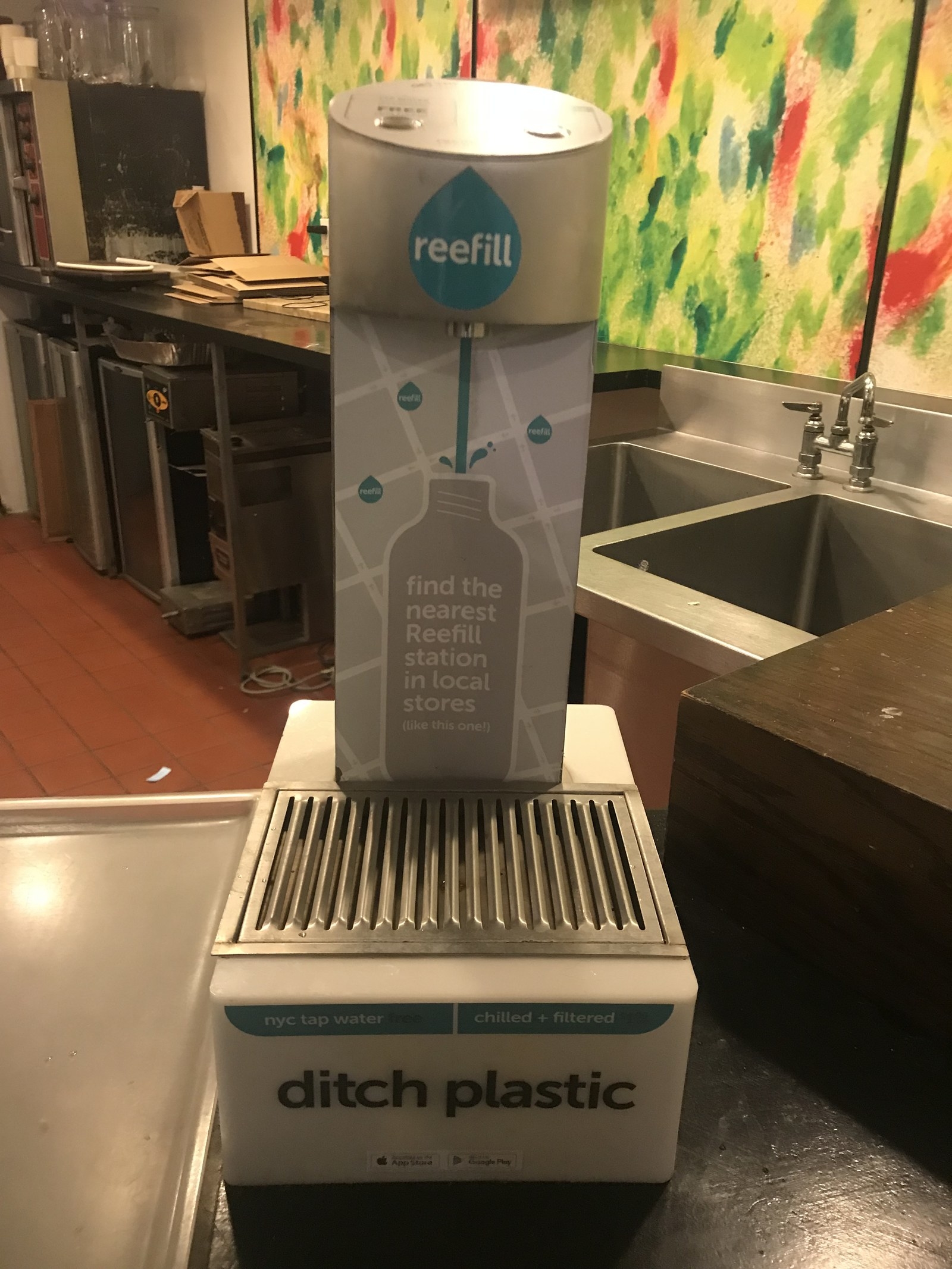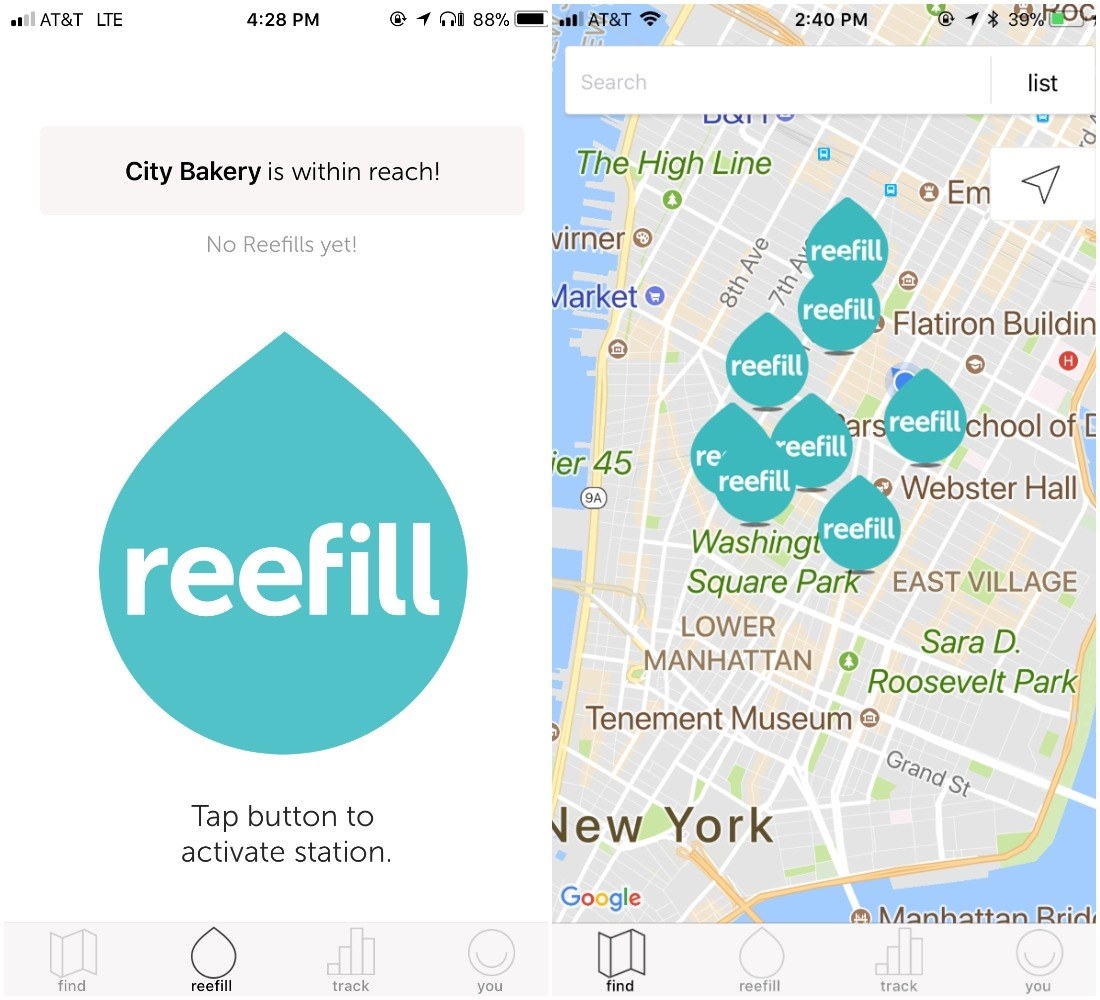As a perpetually thirsty person, I’m always excited by news about drinking water. So when I saw this tweet going viral on Monday, I was intrigued:
Dystopia is here, and increasingly more evenly distributed
Reefill is a smart water dispenser installed in a handful of New York City businesses and university campuses. You can either fill your own water bottle with regular tap water or, for a $2 monthly subscription to the app, get chilled, filtered water.
So, is this a environmentally friendly way to get people to cut down on bottled water and the trash it creates? Or is this the cold, deathly finger of late-stage capitalism grabbing us by the collar?
I'm actually more disturbed by the "reefill app" vs the cost (as bad as that is). I'm just imagining a future of l… https://t.co/kMFp51MBIc
“We were maybe too in the weeds with how we thought about this,” Reefill cofounder Jason Kessler told me. He was was surprised by the strong backlash on Twitter yesterday. “We were thinking about this great new thing, and then we see the reaction on Twitter.”
I wanted to try Reefill for myself, so I signed up for a paid subscription. There are only eight locations in NYC so far, but one of them was at a large café called City Bakery near the BuzzFeed offices. I found the Reefill machine in a bar area in the back, where a few stragglers were eating a late lunch.

I whipped out my phone, tapped the Reefill app, and it gave me 60 seconds to fill my water bottle with that sweet, sweet, not-free filtered water.
I quaffed my bounty, and I have to say…. Not that cold. I was expecting a teeth-chilling cold, but it was just slightly cool. I filled two cooler cups, one with tap and one with the paid water, and took the temperature back at my office. The tap was slightly cooler, and in a blind taste test, my two coworkers both guessed that the tap was the filtered water, mainly because it was colder.
After speaking with Reefill, the company discovered that the chilling unit had become unplugged; it could have been knocked out by someone walking past it.

Kessler and his team started Reefill as an environmentally conscious way to serve the public good. It’s meant to encourage people to cut down on plastic bottles and to offer a solution to a city problem: Retail-dense areas don’t have many water fountains. You can walk blocks and blocks in Midtown without seeing a public drinking fountain. The company came out of an accelerator program called Think Beyond Plastic, and New York University’s Office of Sustainability gave it a grant to install machines on its campus.
Aside from the paid aspect of Reefill, it’s a helpful thing. The app shows you where you can get water. They’re currently in talks with the mayor’s office to add the city’s water bottle refill stations to the app’s map. Hydrated citizens with less waste! What’s not to love?
Well, it’s that $2 fee that people objected to. Reefill’s logic is that $2 is about the price of one bottle of water, and its stations offer you that cold filtered water you love in unlimited amounts (you can fill as many bottles as you want with the app).
But Reefill seemed to miscalculate people’s main motivations for paying for bottled water. You’re paying for the convenience of a disposable plastic bottle — not the water inside. Carrying your own water bottle around all the time is a great idea, but it's not always practical.
Recently, the University of Vermont attempted to cut down on plastic bottle waste by eliminating water bottles from the vending machines. Instead of nudging students to fill their own bottles, the change just drove more sales of sodas from the machines. People wanted something to drink in a disposable bottle on the go.
“The big thing is that it makes it sound like we think tap water isn’t good enough because we offer a paid option," said Kessler. “We love tap water; that’s what we mostly fill. People call New York City tap the ‘champagne of tap water,’ and we don’t disagree!”
Even though the filtered water is still just free tap water, Reefill has overhead for running the chilling and filters, as well as an initial installation cost (Kessler estimates around $2,000 to install a machine in a business, which is way less than if the city installs a public fountain on the street). That’s why there’s a paid offering (5% of revenue goes to a water charity).
“It’s not taking away any solutions that already exist, it’s adding a new one,” Kessler said. “[The Twitter reaction] has made us rethink the way we think of Reefill.”
